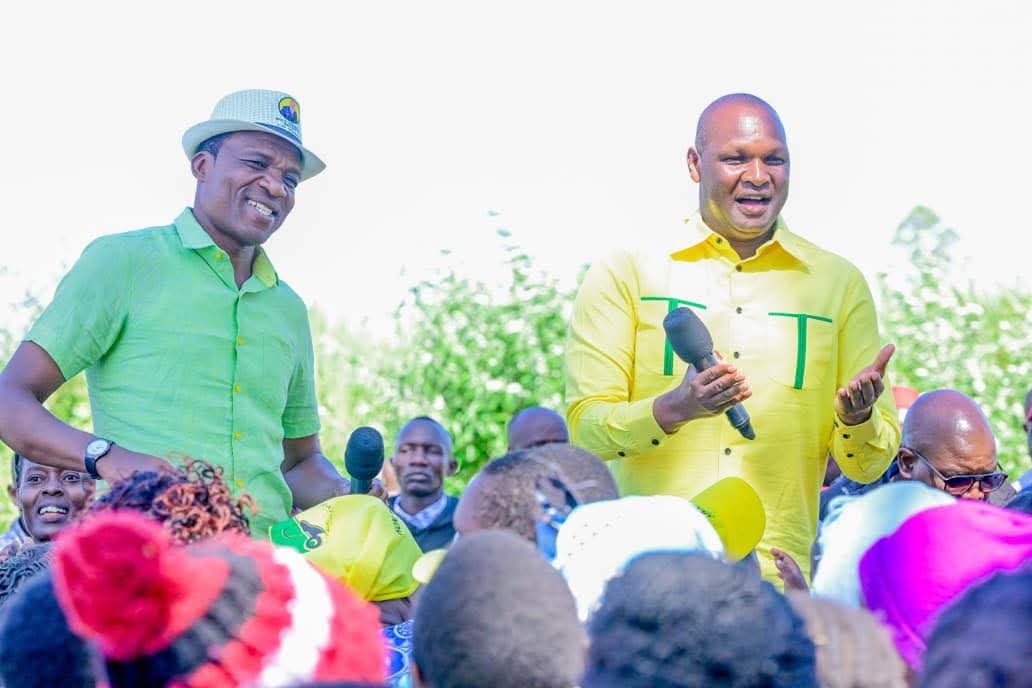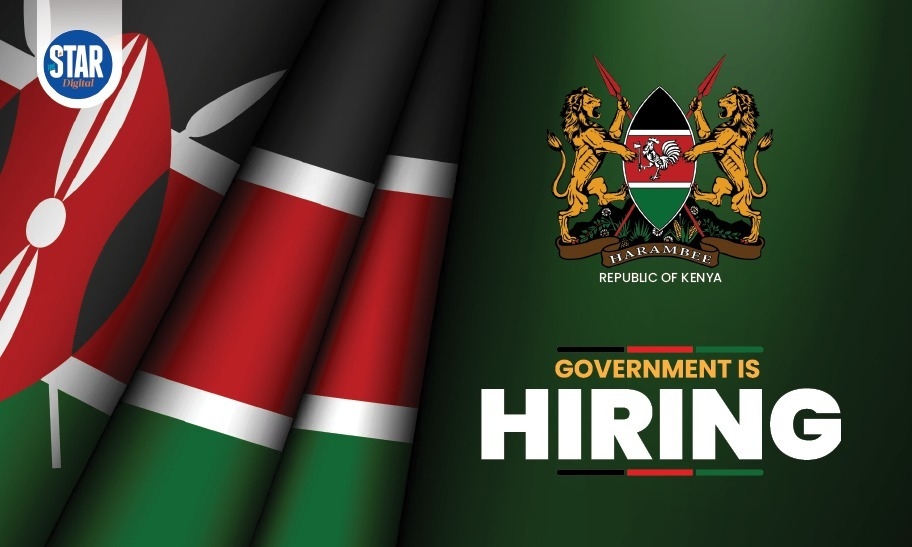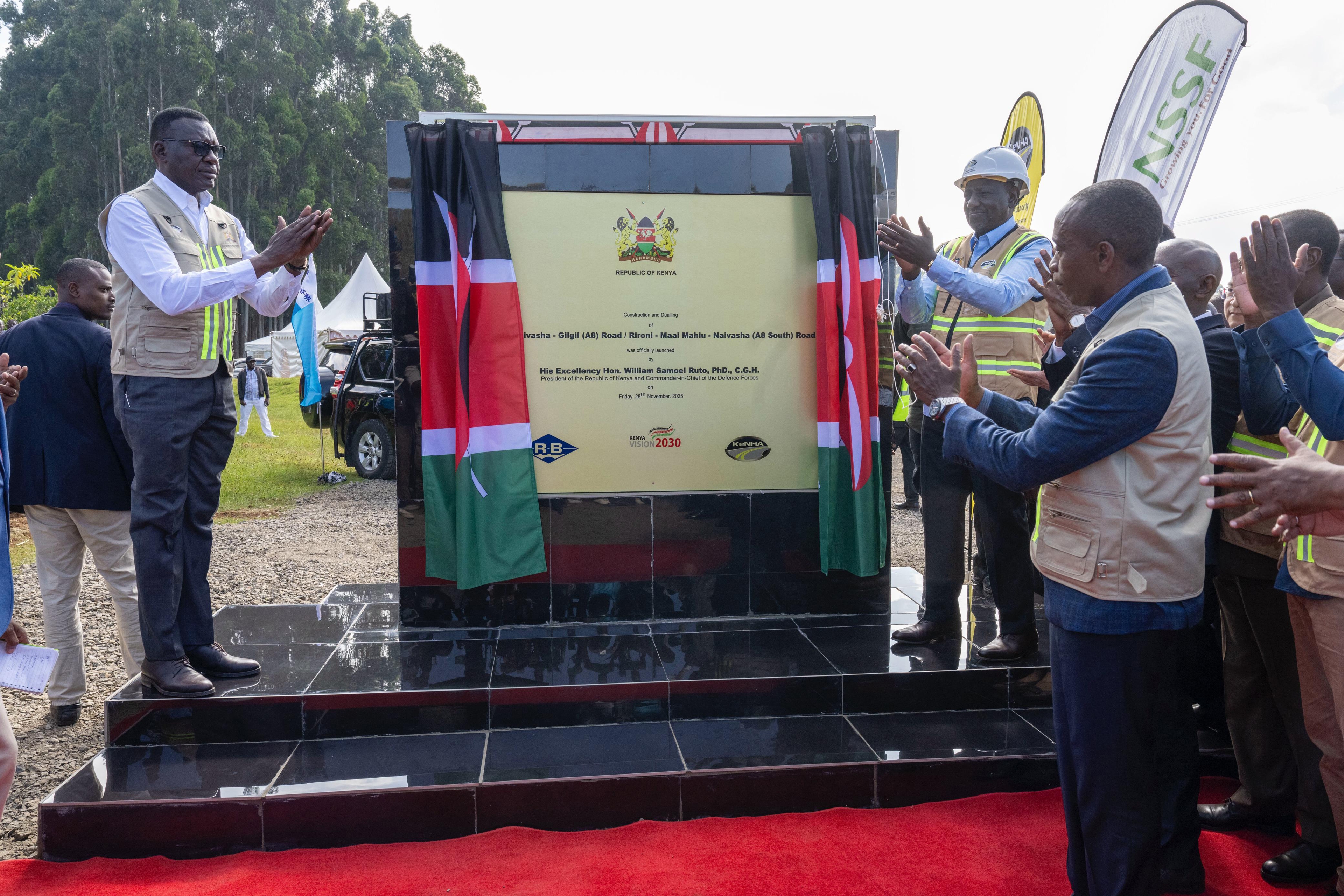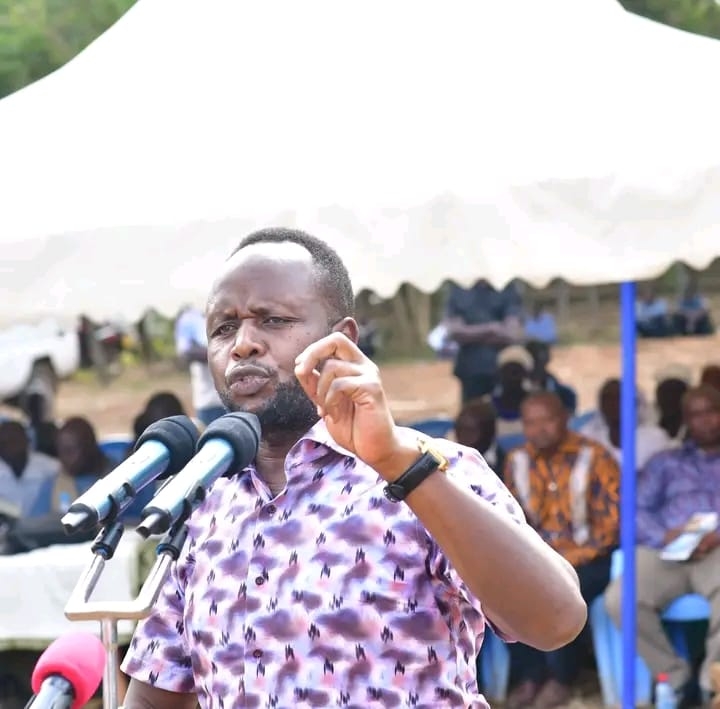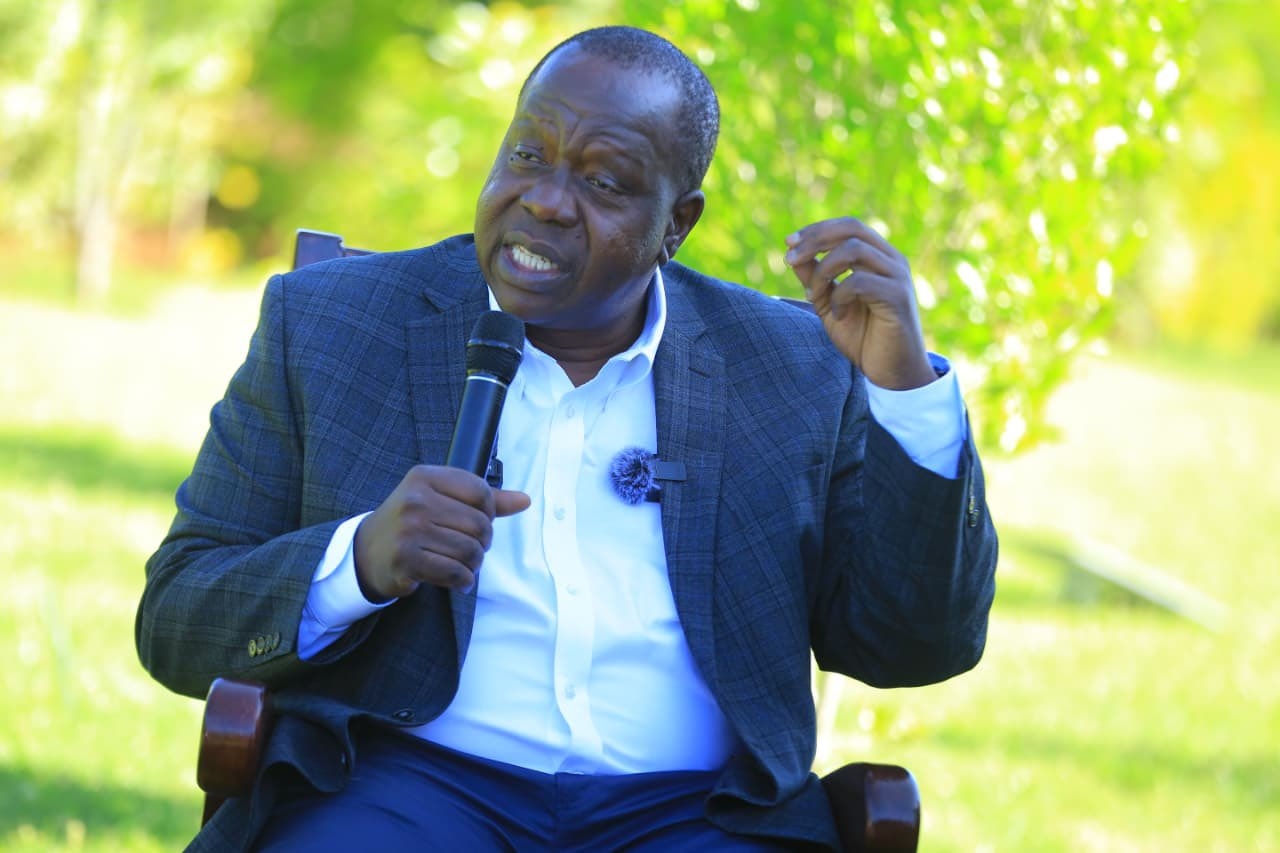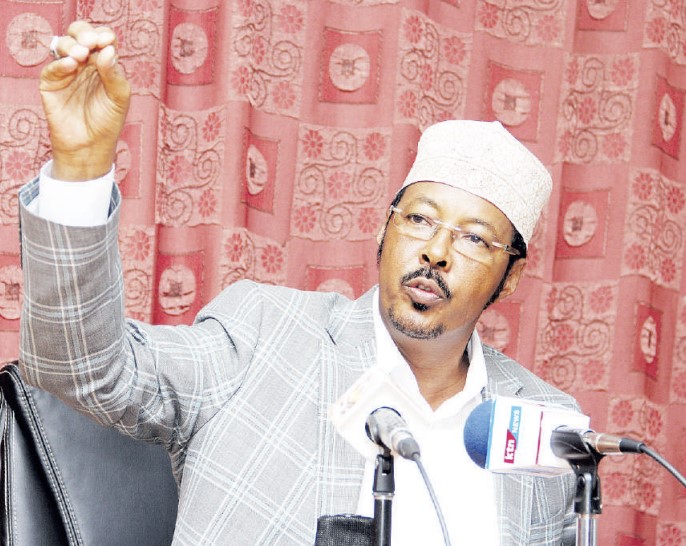
Eldas MP Adan Keynan is regarded as the ‘Father of Parliament’ after becoming the longest-serving lawmaker in the current House.
Reflecting on his time in the corridors of power in an interview with the Star, he said the vibrancy and quality of debate in the August House have significantly reduced.
He blamed this on the large number of MPs and constitutional changes.
These changes removed the Vice President, who was also the Leader of Government Business, and Ministers from Parliament.
However, there have also been positive developments. MPs now sponsor motions and bills at will, and the House has gained institutional and financial independence.
Keynan delved into how the business of the house has changed, how he has maintained a grip on his constituency, the invasion of Parliament by Gen Zs last year and his advice to young lawmakers.
First elected in 1997, Keynan is now in his 28th year as MP, having been elected five times, initially as Wajir West MP and now Eldas.
“By the Grace of Allah, I am now the father of Parliament, Alhamdulillah. This is a result of many years of prayers, hard work, resilience, struggle and focus,” the MP said.
Keynan said he joined politics in his twenties to free his constituents from the yolk of marginalisation discrimination, poverty and maladministration at the time.
He says the arrest of his old uncle by an overzealous chief for refusing to surrender some of his goats for a Harambee pushed him to join politics at an early age.
“That is when I made a decision that we must liberate these people. I started activism in high school. I went to Moi University and did the same. Slowly, I just said no, we must change these things. I ran for Wajir West MP and won,” he said.
He said he built the first secondary school in his constituency and pushed for the repeal of many laws and the establishment of administrative units to liberate the people.
“In 1997, Wajir West was the only constituency in Kenya without a single secondary school. A constituency as big as Central, Nyanza and Western combined, without a single secondary school,” he said.
“We had a programme that enabled us to evaluate ourselves formatively and summatively every year. And that is why I always say, you must be planned.”
LIBERATING THE HOUSE
The legislator said the House has transformed progressively from being an appendage of the executive to a near-independent institution that controls its calendar, staff and budget. Initially, the executives ran the show as they seconded the staff and controlled the business of the House.
“The Parliament under the old Constitution was one of the three arms of government constitutionally but practically speaking, an extension of the executive,” he said.
“When I was first elected, the entire staff of Parliament was seconded from the executive. The clerks were DOs. The structure of Parliament was such that everything was managed by the executive through the speaker and the special officers.”
It took the boldness of the vibrant MPs at the time to push for the establishment of the Parliamentary Service Commission to free the August House.
“It is because of that that in 1999, a few of us came together and said we must get rid of this executive yoke around Parliament,” he said.
Unlike the freedom the current MPs enjoy now, in the 1990s, it was a tall order for an MP to introduce or sponsor a private member’s bill or motion.
First, one had to seek the speaker’s approval before seeking leave from the entire House to agree to the introduction of a proposed legislation.
“You know, members today think that this thing just came,” he says.
Despite the challenges at the time, Keynan says the quality of debate and vibrancy of the House was unmatched.
“The debates were so lively. We had vibrant members like Anyona, Nyong’o and Orengo, and at a certain stage, even the current President, myself and many others joined,” he said.
In the current House, the debate has been comprised partly due to the high number of legislators, he said.
“At that time, Parliament had around 222 MPs. The numbers were manageable. Right now, we have almost 350,” he said.
Keynan lamented that the current Constitution, although lauded as progressive, came with baggage to the taxpayer, who has been forced to shoulder the burden of sustaining the large number of MPs and other constitutional offices created under it.
“How many constitutional commissions do we have? 15 or even more. So many duplications. Look at right now the jurisdictional conflict between the Senate and the National Assembly,” he said.
He blames the Constitution for the criticism of Parliament that it has been captured by the executive.
“Under the current structure, we do not have the Vice President in the House. We do not have the Ministers. What we have is the majority and minority (who bring government business),” Keynan said.
“A member of Parliament is supposed to provide oversight, but that MP is supposed to be an avenue for the executive to transact business, so the member of Parliament is conflicted.”
On the bright side, he applauded Parliament’s outreach programmes, saying they have improved.
GEN Z INVASION
Keynan said the breach of the August House by Gen Zs on June 25 last year was one of the darkest days in the history of Parliament.
“That was an attempt at our democracy. It was an attempt also on our national pride. It was an attempt on our nation. That’s where we say dialogue is the best,” he said. “This is the essence of our democracy: to deliberate, interrogate, coalesce and interact through civilised, peaceful means.”
Keynan slammed former President Uhuru Kenyatta for calling on Gen Zs to stand up and fight for their rights.
“That was reckless, totally reckless, uncalled-for and unexpected. We want unity,” he said.
“We want peace and unity. Don’t incite people. The youth require opportunities. They require employment. They need opportunities. They need proper education. They need school fees.”
The lawmakers called on younger MPs to be civil and respectful to the presidency, the symbol of national unity, even if they do not agree with it.
“You see, I always use this phrase: Civility is not a sign of cowardice. You respect me, I respect you. You appreciate me, I appreciate you. That doesn’t mean that you conform to my way of doing things. No. This means principle,” he said.
“My general advice is, let’s respect the presidency. Let’s respect the President. If you are not comfortable with him, you will have an opportunity in 2027.”
STRENGTHENING TIES
Keynan says he champions the strengthening of the ties between Kenya and Turkey through the parliamentary caucus.
Turkey nowadays goes by the name Türkiye.
The aim, he said, is to improve bilateral and multilateral relations between the two countries and deepen their relationship.
“The Kenya-Turkish parliamentary caucus was established in 2009. I think it is one of the oldest parliamentary caucuses,” he said.
“One thing that caught my attention was the Türkiye Government had representation in Kenya from 1960, but we didn’t have a mission until 2012. I asked myself how come because diplomatic representation is supposed to be reciprocal.”
Through his committee’s intervention, Kenya opened an embassy in Turkiye.
“I formed the group (parliamentary caucus). The group became vibrant. As a result. We have had exchanges of high-level visits from both countries and hence an increase in trade volume and educational opportunities ,” he says.
On Raila’s candidacy for the AUC chairmanship, the lawmaker exuded confidence that Raila will clinch the seat.
He cited Raila’s experience and Kenya’s contribution to the well-being of the continent, though he said the country is punching below its weight.
“Kenya is a premier republic. We have failed, first of all, as a country and as leaders,“ Keynan said.
“Kenya is supposed to be in the league of highly industrialised and developed nations. Where we are today is not our rightful place in the global arena.”




